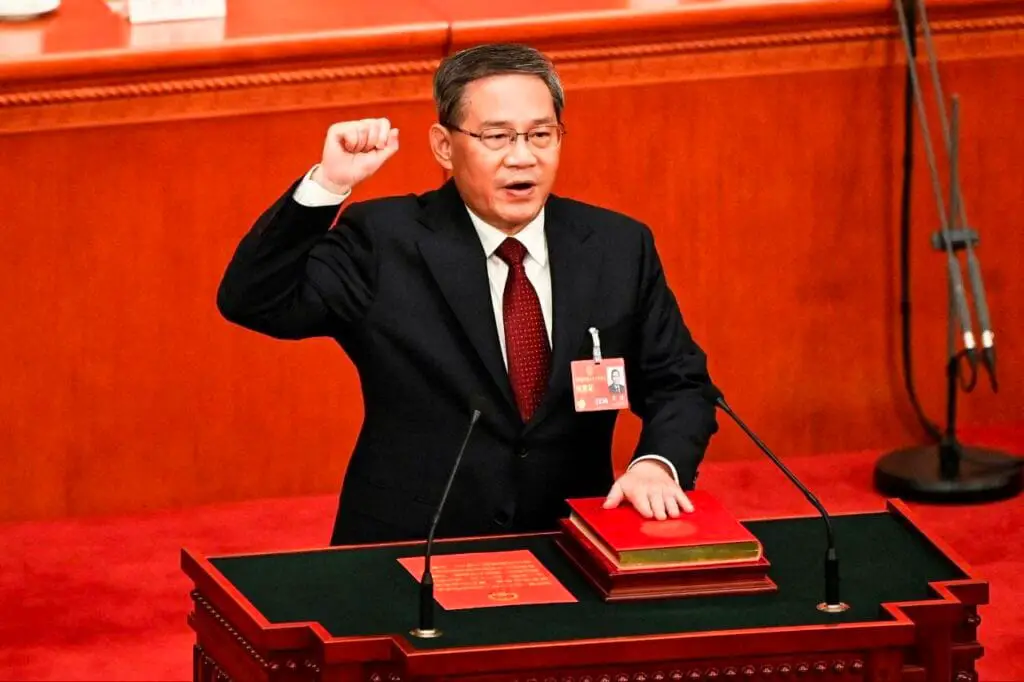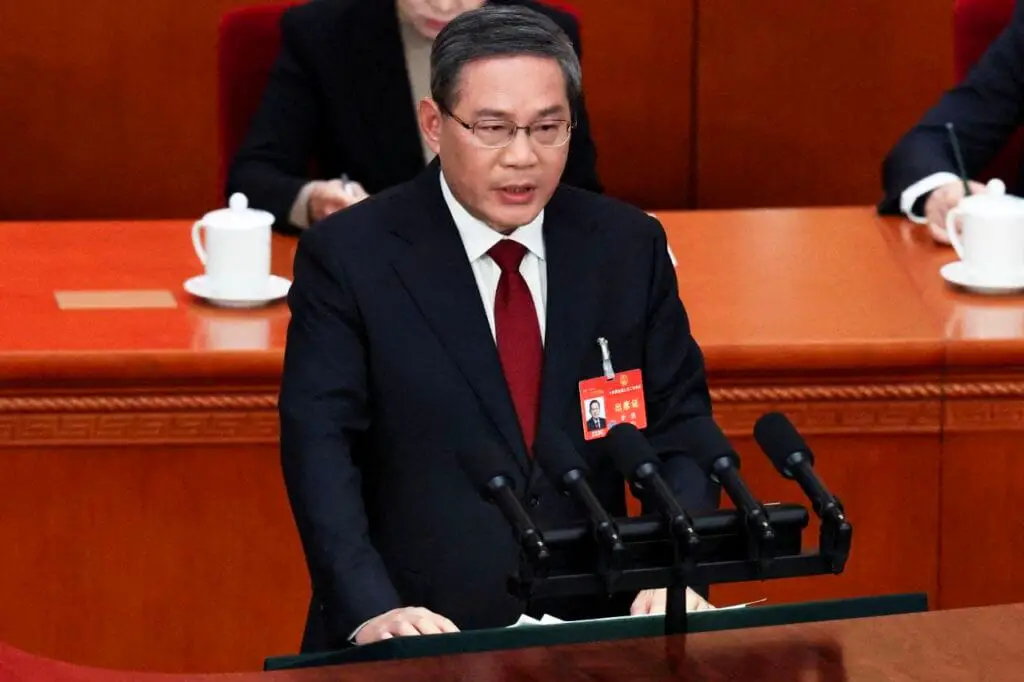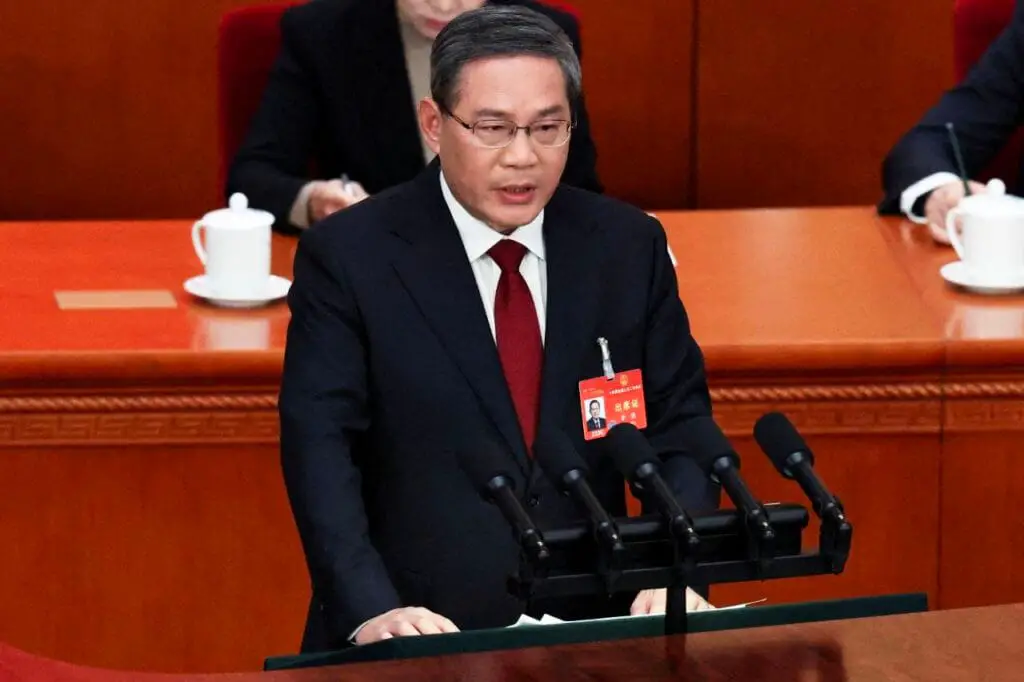
The Premier of the People’s Republic of China is one of the most important positions in the Chinese political system, serving as the head of the State Council, which functions as the executive branch of government. As the chief administrator of China, the Premier is responsible for implementing policies, managing the economy, overseeing government operations, and executing laws passed by the National People’s Congress (NPC). The Premier’s role is instrumental in shaping China’s domestic and foreign policies, particularly in areas related to economic planning and governmental administration.

Historical Context and Evolution of the Role
The position of the Premier was established in 1949 with the founding of the People’s Republic of China, and the first person to hold the office was Zhou Enlai. Under his leadership, the role of Premier became a central element in China’s early political structure, especially in managing the country’s transition to socialism and overseeing the economic policies of the Communist Party. Zhou’s tenure set the foundation for the modern Premier, combining administrative, political, and diplomatic responsibilities.
Over the decades, the role of the Premier has evolved to focus heavily on managing China’s rapid economic growth and modernization efforts, particularly after the Reform and Opening-up policy initiated by Deng Xiaoping in the late 1970s. Premiers like Zhu Rongji in the 1990s and early 2000s were instrumental in implementing economic reforms that transformed China into a global economic powerhouse.
Today, the Premier is seen as the architect of China’s economic and social development policies, working in coordination with the President and other top leaders of the Communist Party of China (CPC).
Appointment and Structure of Power
The Premier is nominated by the President of China but must be confirmed by the National People’s Congress (NPC), the country’s highest legislative body. Once appointed, the Premier serves for a five-year term and can serve up to two consecutive terms. In practice, the Premier is often one of the most senior leaders within the Communist Party, holding a high position in the Politburo Standing Committee, the party’s top decision-making body.
While the Premier is second to the President in terms of official ranking, the office holds significant influence over government policy. The Premier works closely with Vice Premiers and State Councilors to direct the activities of ministries and commissions under the State Council. The Premier’s authority extends to all areas of government, from economic planning to environmental policy and foreign relations.
Although the President serves as the ceremonial head of state and a key political leader, the Premier is in charge of the day-to-day administration of the country. This division of responsibilities between the Premier and the President ensures a balance between party leadership and state governance.
Functions and Responsibilities of the Premier

The Premier’s responsibilities are wide-ranging and cover several critical areas of governance:
1. Economic Management
The Premier is primarily responsible for China’s economic policies. This includes overseeing the country’s five-year plans, which outline key economic and social development goals. The Premier leads the efforts to stabilize economic growth, manage inflation, control public spending, and guide industrial and technological development.
In particular, the Premier is tasked with handling major economic issues such as:
- Fiscal and monetary policy, including setting tax policies and controlling interest rates.
- Managing state-owned enterprises (SOEs), which play a significant role in China’s economy.
- Overseeing the national budget, ensuring that expenditures align with development objectives.
In recent decades, Premiers like Li Keqiang have focused on transitioning China from an export-driven economy to one that is based more on domestic consumption, innovation, and services. The Premier also plays a key role in responding to economic crises, such as fluctuations in global trade or financial markets.
2. Formulating Government Policies
As the head of the State Council, the Premier oversees the formulation and execution of government policies. These policies cover a wide range of areas, including education, healthcare, agriculture, infrastructure development, and urbanization. The Premier ensures that laws passed by the NPC are implemented effectively by government departments and agencies.
3. Administrative Oversight
The Premier is responsible for ensuring the smooth functioning of the State Council and the various ministries and departments that fall under its jurisdiction. This includes:
- Managing and supervising government agencies.
- Coordinating the activities of ministers and provincial governments.
- Ensuring that administrative decisions align with the broader policies of the Communist Party of China.
The Premier also plays a crucial role in modernizing China’s administrative system by promoting bureaucratic efficiency and combating corruption within government ranks.
4. Foreign Policy
Though the President is China’s official head of state, the Premier also plays a significant role in foreign diplomacy and international relations. The Premier often represents China at important international summits, such as the ASEAN, APEC, and G20 meetings. In these forums, the Premier discusses economic cooperation, trade deals, and global challenges such as climate change and regional security.
The Premier’s involvement in foreign policy also extends to signing bilateral agreements and trade deals that are vital for China’s global economic interests. For example, Premier Wen Jiabao was known for strengthening China’s economic ties with African nations and boosting China’s role in global institutions like the World Trade Organization (WTO).
Challenges Faced by the Premier
As China’s economy and society continue to evolve, the Premier faces numerous challenges in maintaining stability and growth. Some of the key challenges include:
a) Economic Transition
China is in the process of transitioning from a manufacturing-based economy to one driven by innovation, technology, and services. The Premier is tasked with managing this shift while avoiding economic slowdown, rising debt levels, and job losses in traditional industries.
b) Environmental Issues
The Premier must address environmental degradation, which has become a major concern in China. This includes tackling air and water pollution, reducing carbon emissions, and promoting sustainable development. Balancing economic growth with environmental protection remains a delicate challenge.
c) Urbanization and Social Inequality
As China continues to urbanize rapidly, the Premier must deal with issues like the rural-urban divide, rising income inequality, and access to public services. These social challenges require the implementation of reforms in housing, healthcare, and education to ensure that the benefits of China’s growth are widely shared.
d) Global Economic Integration
The Premier is responsible for navigating China’s role in the global economy, especially as tensions arise in international trade, such as the ongoing US-China trade disputes. Managing China’s Belt and Road Initiative (BRI) and maintaining stable relations with major economic powers are also crucial tasks for the Premier.
Conclusion
The Premier of China holds a position of immense responsibility within the Chinese political system. As the head of the State Council and chief administrator of the country, the Premier plays a central role in managing China’s economy, formulating policies, overseeing government operations, and engaging in foreign diplomacy. Although the Premier operates within a political system dominated by the Communist Party, the office is crucial to ensuring the effective governance of China’s vast bureaucracy and economy.
Through careful management of both domestic and international issues, the Premier has a direct impact on China’s development path, helping steer the nation through challenges and opportunities in a rapidly changing world. The role of the Premier will continue to be pivotal as China seeks to maintain its position as a global economic leader while addressing internal social, economic, and environmental concerns.
